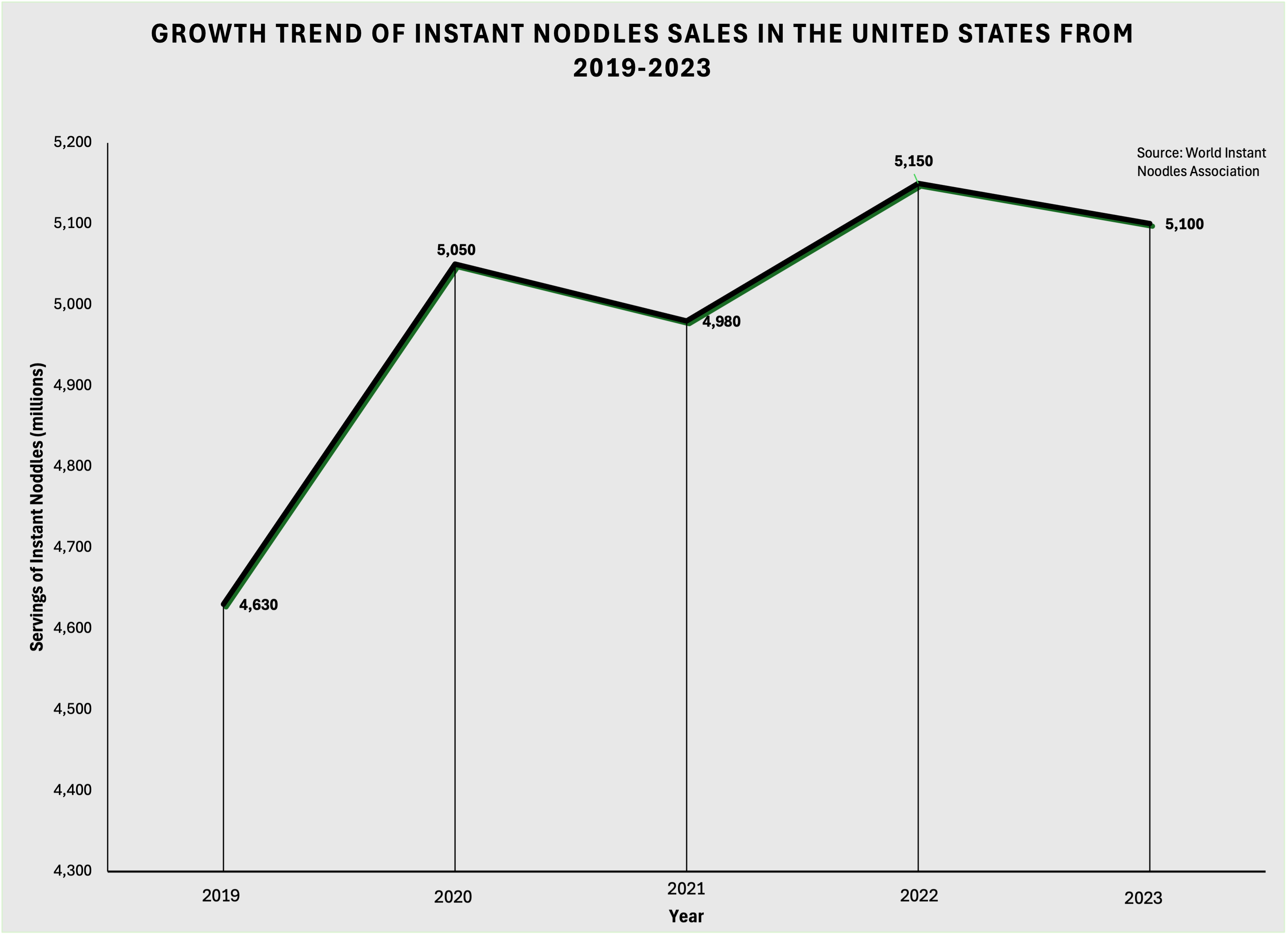H Mart, a leading US Asian supermarket chain, partnered with Uber to offer a delivery service from over 70 of its locations nationwide. This launch marks H Mart’s efforts to expand its e-commerce platform, addressing the rapidly growing demand for online Asian grocery delivery that is shaping the way Americans shop for food.
In July 2024, the Asian American supermarket chain H Mart expanded its delivery service through a partnership with Uber Technologies, Inc. Customers can now enjoy the convenience of having Asian groceries delivered to their door by ordering through the Uber Eats app. The service, available at 78 H Mart stores nationwide, offers both scheduled and on-demand delivery options to better meet customer needs. This partnership marks another significant step in H Mart’s ongoing efforts to modernize its operations and adapt to an increasingly digitalized grocery market in the United States.
H Mart first initiated online delivery in June 2015 through a partnership with Instacart, which brought its Asian products to several metropolitan areas such as Atlanta, Boulder, Boston, Chicago, Los Angeles, New York City, and more across the country for the first time. By 2019, following a successful rollout, the supermarket chain expanded the service to all of its US locations.
H Mart recently expanded its presence in the e-commerce market by teaming up with the digital commerce platform VTEX. Announced on July 20th, 2024, the collaboration is expected to elevate the grocery chain’s online operations and streamline the shopping experience for customers. As part of this partnership, H Mart is launching a new pick-and-pack service that allows customers to track real-time inventory at their local stores. Additionally, the collaboration also boosts H Mart’s delivery capabilities, enabling shoppers to purchase both fresh and dry goods in a single transaction.
As the demand for Asian products continues to rise, digital transformation is becoming crucial for H Mart and many Asian grocery stores. A prime example is Nissin Foods USA, a subsidiary of the Japanese instant noodle giant, which has experienced unprecedented growth in the US market. In the first quarter of fiscal 2023, the company reported its fourth consecutive quarter of double-digit growth, with a 27% increase in sales compared to the previous year. This growth has solidified the company’s status as a “pantry staple” by selling over 1.4 billion servings of noodles in 2021.
The COVID-19 pandemic dramatically changed American food habits, pushing more people to embrace at-home dining than ever before. While Nissin Foods USA attributed this growth, in part, to the at-home dining lifestyle during COVID-19, the surge in sales is also significantly fueled by the rising popularity of its flagship products, such as Cup Noodles, Hot & Spicy Fire Wok, Top Ramen, and Original Cup Noodles. Other Asian instant ramen brands, including Maruchan and Nongshim, have also seen consistent growth in US markets, with Nongshim reporting an annual increase of 10% each year since 2010.
In 2022, Americans consumed over five billion servings of instant noodles, making the United States the 6th largest consumer globally, and the only country outside the Indo-Pacific region to rank among the top six according to the World Instant Noodles Association.

In addition to the ongoing at-home dining trend and the rise of instant noodle consumption in the United States, many grocery chains are accelerating their digital transformation to meet the growing demand for online food delivery and shopping post-COVID-19. Emerging online Asian grocery stores such as Weee!, Yamibuy, and Umamicart are becoming popular destinations for American customers seeking Asian food products.
Weee!, launched in 2015, stands as a pioneer in the Asian e-grocery market in the United States. Initially focused on delivering “cherished” foods to Chinese immigrants, the company quickly expanded its offerings to include products from Korean, Japanese, Vietnamese, and Filipino cuisines. Today, Weee! features over 10,000 items from across South, East, and Southeast Asia. The platform is designed to be accessible to a diverse customer base, with multiple language options including English, Spanish, Chinese, Japanese, Vietnamese, and Korean.
Yamibuy, another key player in the booming Asian e-grocery industry, was founded in 2013 by Alex Zhou, then a Chinese college student at the University of Kansas. Struggling to find Asian products in the Lawrence, KS area, Zhou created Yamibuy with just 200 snacks and served as the sole employee for the first three months. The company has since grown exponentially, now employing over 300 people across its locations in Los Angeles, California, and Xi’an, China. With approximately 95% of its products imported from Asia and a user base exceeding 800,000, Yamibuy has consistently reported double-digit growth each year, leading to an estimated company valuation of over $100 million.
A few decades ago, accessing Asian products in the United States meant relying on small, local businesses. Today, the rapid growth of Asian grocery stores like Weee!, Yamibuy, and H Mart underscores a broader shift in American food culture. These stores have made once-hard-to-find Asian products widely accessible. By partnering with Uber for a delivery service, H Mart is part of a bigger trend of Asian grocery stores bringing Asian cuisine into mainstream US markets. This growth reflects the deepening economic and cultural ties between the United States and the Indo-Pacific region.
Aom Boonphatthanasoonthorn is a Summer 2024 Young Professional at the East-West Center in Washington. She is pursuing a master’s degree in public policy with a national security certificate at the Howard H. Baker Jr. School of Public Policy and Public Affairs at the University of Tennessee, Knoxville